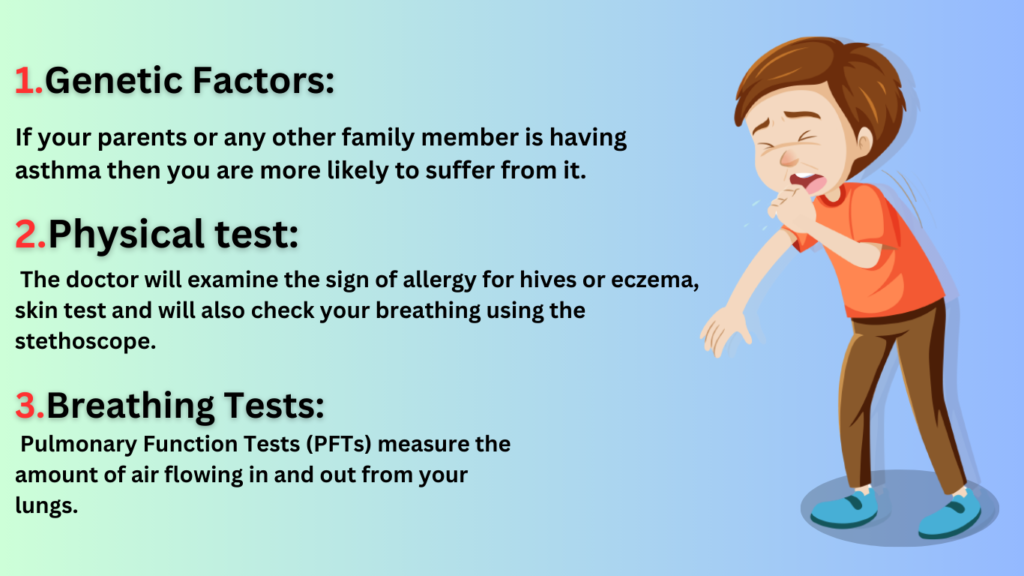
Best Asthma Doctor In Jaipur
Asthma Doctor In Jaipur ,Asthma is a condition that affects the pathways leading to the lungs. In this ailment, these airways become inflamed and constricted, while also producing an excess of mucus. This combination of factors results in difficulties with breathing, persistent coughing, wheezing (a high-pitched sound during inhalation), and a sense of breathlessness.
Typically, when we breathe in through our nostrils, the air travels down the throat, passing into the airways, and ultimately reaching the lungs. Inside the lungs, there are numerous tiny air passages responsible for delivering oxygen into the bloodstream.
When the lining of these airways becomes inflamed and the muscles contract, it gives rise to asthma. The buildup of mucus further obstructs the passage of air, making it harder to breathe.
What is Asthma disease?
Asthma is a condition that affects the pathways leading to the lungs. In this ailment, these airways become inflamed and constricted, while also producing an excess of mucus. This combination of factors results in difficulties with breathing, persistent coughing, wheezing (a high-pitched sound during inhalation), and a sense of breathlessness.
Typically, when we breathe in through our nostrils, the air travels down the throat, passing into the airways, and ultimately reaching the lungs. Inside the lungs, there are numerous tiny air passages responsible for delivering oxygen into the bloodstream.
When the lining of these airways becomes inflamed and the muscles contract, it gives rise to asthma. The buildup of mucus further obstructs the passage of air, making it harder to breathe.
Asthma Types Asthma doctor in jaipur
1.Mild Intermittent Asthma
3.Moderate Persistent Asthma
2.Mild Persistent Asthma
4.Severe Persistent Asthma
YOU HAVE A QUERY ?
You are just a call away!
Asthma is a complex condition, and its exact causes are not fully understood. However, several factors are known to contribute to the development of asthma. These factors include:
- Genetic Predisposition: A family history of asthma or other allergic conditions, such as hay fever or eczema, can increase an individual’s risk of developing asthma. Certain genetic factors may play a role in asthma susceptibility.
- Allergies: Allergic reactions to common allergens, such as pollen, dust mites, pet dander, mold, and cockroach droppings, can trigger asthma symptoms. This type of asthma is often referred to as allergic or atopic asthma.
- Environmental Factors: Exposure to various environmental irritants and pollutants, including tobacco smoke, air pollution, and chemical fumes, can contribute to the development of asthma. Prolonged exposure to such irritants, especially during childhood, can increase the risk.
- Respiratory Infections: Respiratory infections, particularly viral infections like the common cold, can increase the likelihood of developing asthma, especially in children. Early life infections can affect lung development and increase asthma susceptibility.
- Occupational Exposures: Some individuals may develop occupational asthma due to exposure to irritants or allergens in the workplace, such as chemicals, dust, or fumes.
- Hygiene Hypothesis: This theory suggests that reduced exposure to infections and microbes in early childhood may increase the risk of developing asthma. It proposes that a lack of exposure to certain microbes may result in an overactive immune response and increased asthma susceptibility.
It’s important to note that asthma is a heterogeneous condition, meaning it can vary widely from person to person. Additionally, while these factors are associated with an increased risk of developing asthma, not everyone exposed to these factors will develop the condition. Asthma is also influenced by a combination of genetic and environmental factors, making it a multifaceted condition that affects individuals differently.
Diagnosis of Asthma
There is no such single test that can determine whether you are suffering from asthma or not. Asthma Doctor In Jaipur performs certain tests and examines the symptoms to give you a proper report, such as:

- Genetic Factors: If your parents or any other family member is having asthma then you are more likely to suffer from it.
- Physical test: The doctor will examine the sign of allergy for hives or eczema, skin test and will also check your breathing using the stethoscope.
- Breathing Tests: Pulmonary Function Tests (PFTs) measure the amount of air flowing in and out from your lungs. One of the most common tests is Spirometry, in this, you will blow the air of which the speed will be checked.
Asthma Treatment
Asthma Doctor In Jaipur treats of Asthma is divided into 3 primary categories: breathing exercises, First aid treatments, and long-term asthma control medications.
- Breathing Exercises: There are many breathing exercises that can help in moving more air in and out of your lungs. After a time, this will increase the lungs capacity and thereafter, the symptoms of asthma would get reduced.
- First aid treatments: These are the medicines that a patient use during an Asthma attack to get quick relief in breathing. These include:
- Nebulizers and inhalers are used with medicines that need to be inhaled deep into the lungs.
- Bronchodilators relax the muscles that tighten the lungs.
- Anti-inflammatories target inflammation in the muscles that prevent breathing
- 3.Long-term Asthma treatment: These medications are taken regularly with a fixed dose prescribed by the doctor.
Asthma Prevention
There is no definite reason for asthma, which an individual can forestall. Notwithstanding, there are numerous methodologies that an individual can adjust to limit the side effects. These are:
1.Try not to Set off Causes: Synthetic compounds, smells, or ecological elements that make breathing issues for you.
2.Limit the openness to allergens: On the off chance that dust particles or different allergens trigger an asthma assault, attempt to keep away from them however much as could reasonably be expected.
3.Legitimate drug: Being an asthmatic patient, consistently deal with your meds.






